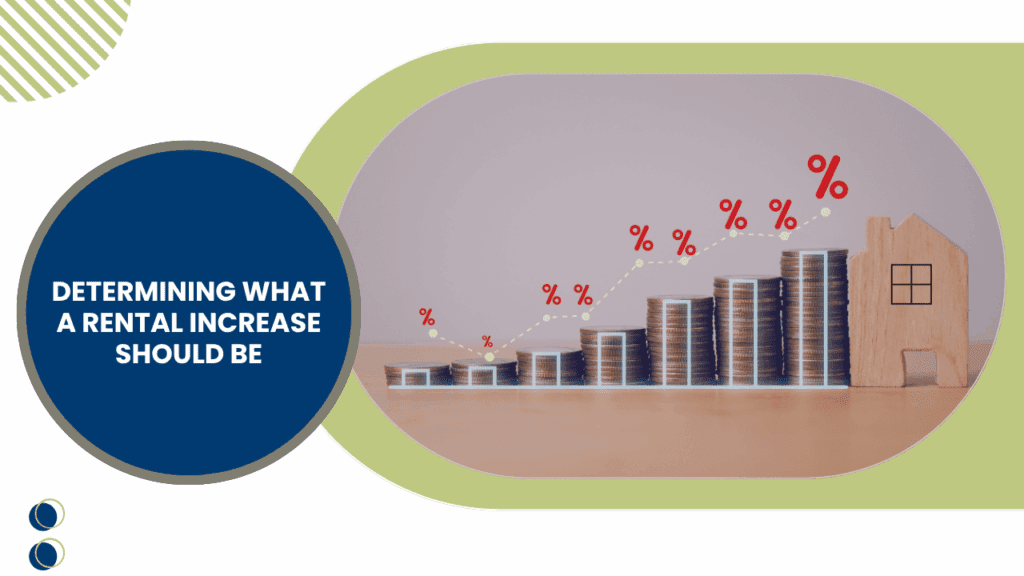
Rental increases can be a source of fear and frustration for some rental property owners. Without a calculated approach, you risk losing tenants or falling short of maximizing your property’s income potential.
Staying up to date with the local rental values in Dayton is essential to keeping your investment property occupied and profitable. You need a competitive rental value that reflects the market and the unique qualities of your rental home.
As we determine what a rental increase should be, it’s also important to recognize what it should not be. It should not be arbitrary or simply based on what an owner thinks the property is worth. It should not be so high that the tenant is suddenly motivated to move, leaving you with an expensive turnover and a long vacancy.
We have put together some considerations and insights to help rental property owners determine an optimal rental increase, balancing profitability with tenant retention.
Understanding Dayton Rental Market Dynamics
The foundation of setting an appropriate rental increase lies in a solid grasp of the current real estate market dynamics. Start by conducting thorough research on:
- Local Market Trends. Analyze comparable properties in your area to gauge the going rental rates. Websites like Zillow or Rentometer can offer valuable insights as you start to think about what you’ll want to charge, but dig into some more reliable data. At ManCo Property Services, we are always collecting data and insights that can provide a more nuanced look at where the market is.
- Supply and Demand. Consider the balance of housing supply and tenant demand in your region. A high demand with limited supply may justify a higher increase. Competition is always going to impact the amount of your rental increase. If there are a lot of rental homes just like yours, you need to be especially competitive. If the market is pretty tight and tenants are having trouble finding a rental home like the one you have to offer them, you can raise the rent a bit more.
- Economic Indicators. Stay informed about local economic conditions, such as employment rates and inflation, which affect tenants’ ability to afford higher rents. With mortgage rates dropping, for example, more tenants may be leaving their rental homes in order to buy. The right rental increase considers how the local economy is impacting the rental market.
Evaluate Property Value and Upgrades
Once an owner has an understanding of how the market is performing, it’s time to take into consideration how a particular property fits into that market. Are you offering features and amenities that other properties cannot?
An increase in your property’s value can justify a rental hike. Before deciding on what your rental increase is going to be, assess the following:
- Property Improvements
Any recent upgrades or renovations should be factored into your decision. For example, adding new appliances or enhancing property amenities typically supports a higher rent. Have you included some smart home technology or invested in energy-saving appliances? These will drive up what you can ask in rent.
- Investment Returns
Calculate the expected return on investment (ROI) for any improvements, and consider setting a rental increase that aligns with achieving your financial goals. When you install that new flooring or upgrade the landscaping, you’re doing so with the expectation that these improvements will lead to higher rents. If the market will support it, you want to be sure you’re earning back what you’ve invested.
How Much Should You Raise Your Rent?
Market forces and property value is really what it comes down to. The Dayton rental market is strong and competitive. Tenants are looking for high-quality, well-maintained homes, and they’re willing to meet the higher rental values that we’ve seen over the last couple of years. Tenants often expect their rent will go up when the lease renews.
How much can you comfortably raise your rent without losing your tenant? Here’s what we recommend:
If you are raising the rent on a vacant property after existing tenants have moved out, you can start from any point that’s market-based. When you’re increasing the rent during a renewal period, you want to keep your current residents and ensure they’ll renew the lease agreement.
To do that, we recommend keeping your rental increase to between 5 and 8 percent at renewal time. This will ensure you stay slightly under market. Those tenants won’t have a reason to go looking elsewhere.
Today’s residents are smart. They’re informed. They’ll know they’re getting a good deal, especially if you’re providing a fantastic rental experience. Not only are rents higher outside of the home they’re currently living in, they also know they’ll have to face the cost of moving. That requires time and financial resources.
When you have a good resident who takes care of the property and pays rent on time, you don’t want to squeeze them financially. Keeping a great tenant in place is worth giving up a little bit of your profit margin at renewal time.
Offer Value and Incentives with Your Rent Increase
In today’s competitive rental market, it makes sense to encourage your tenants to renew their lease agreement by offering incentives such as discounts and other benefits for long-term tenancy. There are a few ways to do this.
- Discount the rent for a longer tenancy. For example, maybe the rent goes up by $125 a month for a 12-month renewal but only $100 per month for an 18-month renewal.
- Offer rebates for on-time rent payments. If rent is paid on-time for six months straight, you can deduct $50 from month seven, for example.
- Consider what may need an upgrade or a replacement. Does the tenant want a new microwave? Is the refrigerator ready to be replaced? These incentives for a renewal are a great idea, not only because the tenant is getting something in return for the higher rent but because you would have made those improvements anyway, if the tenant decided to move out. It’s cost-effective.
 As a landlord in Dayton, it’s essential to stay up-to-date with current regulations and best practices for lease renewals and rent increases. Make sure you check your lease agreement so you’re in compliance with timelines and notice periods.
As a landlord in Dayton, it’s essential to stay up-to-date with current regulations and best practices for lease renewals and rent increases. Make sure you check your lease agreement so you’re in compliance with timelines and notice periods.
Let’s talk about your rental increase. Contact us at ManCo Property Services. And remember: If it’s a property managed by ManCo, life just got better!
